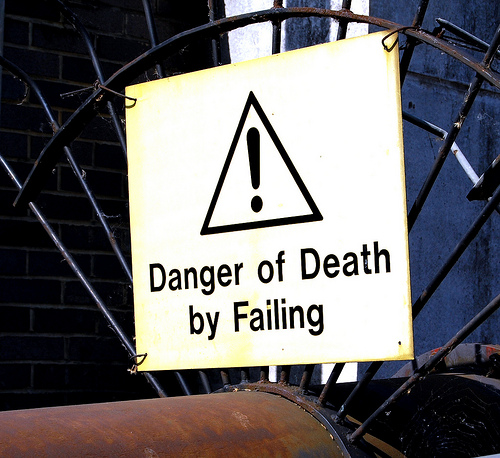On a few occasions in recent weeks I have been reading criticisms of the current generation of teenagers and found myself continually asking the same question – “Is it really the fault of teenagers?”
I found myself asking that question because it occurred to me that there was only one side of the story being presented. Like my mum always taught me there is at least two sides to every story. Teenagers behave in certain ways, but they don’t live in a vacuum. They live in world governed by adults.
I am sure that if both sides of certain situations were examined we would find that adults contribute significantly to the problems they are blaming teenagers for.
I am certain teenagers today, just like teenagers of generations past, make mistakes, are disappointing, do dumb stuff, and all the rest of it. But sometimes adults seem to take a somewhat uncritical view of their own part in proceedings while maintaining a highly critical spirit towards teens.
In this post I want to highlight some common criticisms aimed at teenagers which could be easily attributable to adults.
Today’s Teenagers Aren’t Committed
I am sure you have heard or read statements like this about teenagers. They are hard to gain commitment from, they are unreliable, or they don’t try whole heartedly.
My experience with teenagers is that they will eagerly commit and rise to impressive heights when given the opportunity and a cause worth committing to. Teenagers still have an optimism to believe they can change the world. They aren’t yet bitter or cynical, nor are they daunted by memories of past failures. They are hopeful and energetic.
The reason teenagers may be inconsistent or non-comital is because adults fail to set the bar high enough to interest and inspire.
Adults fail to offer teenagers something worthy of their commitment. Too often adults set the bar too low which doesn’t even generate interest, never mind inspire commitment. Why would a young person full of hopes and dreams be interested in something mediocre or easily achieved? If you want a teenager to commit, give them a cause that is big, beautiful, and will make a difference. It is more often us adults who are happy to settle for small goals.
Today’s Teenagers Don’t Listen
This is a criticism leveled at nearly every generation of teenagers. Teenagers are notorious for failing to follow instructions or adhere to adult expectations.
There are numerous times when it is fair and accurate. However there are a lot of times when it is not fair or justified.Teenagers don’t do what adults want a lot of the time because adults don’t make it clear. It isn’t that teenagers don’t listen, it is that adults don’t communicate.
When someone doesn’t get a message one possibility is they haven’t listened, the other equally probable reason is the instructor hasn’t presented the message clearly.
I have seen parents do it, teachers do it, and youth workers do it. Communicate poorly and then get frustrated and angry with teenagers for not complying. I haven’t known what they required – and I was an adult paying attention.
As adults we do well to ask ourselves when faced with non-compliant teenagers, “Have I made myself clear? Did I check they understood what I required from them?
Today’s Teenagers Are Self Centered
Adolescents are naturally self absorbed to a point, it is a natural part of teenage development. Being critical of it is like criticising old people for moving slowly.
However much of the modern complaints about teenagers is that even with prompting and encouragement they show little interest in anything else other than their own welfare. Such complaints from adults should be uttered very very quietly and with great caution.
If today’s generation of teens are particularly self focused we can hardly blame them. They have been brought up in culture full of adults who have modeled individualism and materialistic self interest to them every day of their young lives.
When adults complain about teenagers self centeredness and desire to have everything they should ask where teens got such expectations or where they learnt to view world in such a narrow way.
Today’s Teenagers Don’t Participate
It could be politics, social debates, community programs, volunteering, or any host of public arenas. Adults bemoan the lack of youth participation and engagement.
Never do I hear our generation question their own actions, rather it always a criticism of teenager’s inaction.
Could it be that teens don’t participate because they are not asked to, their contributions are not valued or taken seriously, or when they do participate they feel patronised and disrespected? I wonder.
If as adults we looked first at the programs and systems that are being ignored rather than at those that are ignoring them we might come up with some different answers. Could it be that the reason young people don’t participate is because they see the programs and systems as irrelevant, token, corrupt, or pointless?
What would happen if rather than designing and establishing systems and programs for youth, adults actually engaged and worked with youth? What would happen if adults listened as much as they preached, or really sought to have meaningful cross generational dialogue? What would happen if adults were as willing to compromise as they expected young people to?
Today’s teenagers aren’t perfect, but neither are today’s adults. What are your thoughts?
Image by AlmazUK










